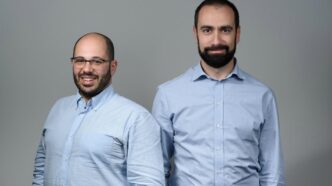Marathon Venture Capital, based in Athens, has successfully raised €75 million for its newest fund, bringing its total assets under management to €175 million. This marks a significant milestone for the 8-year-old seed-stage investor, reflecting the growing maturity of the Greek tech ecosystem. The firm’s latest funding round, which includes participation from Y Combinator, Brian Shin, and Uncorrelated Ventures, highlights the trust investors place in Marathon’s vision for Greek innovation.
One of the key drivers behind Marathon’s impressive fundraising success is its track record of sizable exits. Last year, the firm sold its portfolio company Augmenta to CNH, a global manufacturer of farm machinery and construction equipment, in a $110 million cash deal. Marathon also sold shares in Hack the Box, a cybersecurity platform, to Carlyle in a secondary transaction. These exits showcase the potential of the startups Marathon supports and underscore the venture firm’s ability to identify high-impact opportunities in emerging sectors.
In an exclusive interview, Panos Papadopoulos, Marathon’s partner, shared insights into the firm’s approach to venture capital, its thesis, and the future of Greek tech startups.
Why Greece? Why Now?
For years, Greece has seen less venture investment compared to other European countries. However, Marathon’s recent fundraise suggests that things are changing. Papadopoulos explained that Marathon I, the firm’s first fund, is a top performer globally in terms of realized returns. The firm built a portfolio that captured the zeitgeist of emerging technologies before areas like AI-assisted scientific research, robotics, and defense became mainstream. This strategic foresight has allowed Marathon to attract significant capital despite global fundraising challenges.
Marathon’s investment thesis revolves around backing founders who are solving hard problems in important markets. These problems might require specialized knowledge, like a PhD in research, or a deep understanding of complex and often overlooked industries, such as power grid management. Marathon’s new fund will continue to focus on this philosophy, tapping into its growing community of founders and experts, while doubling down on the ambition and experience that define Greece’s startup ecosystem.
Evaluating International Growth Potential for Greek Startups
Greek startups have historically struggled to scale beyond the local market. However, Papadopoulos pointed out that many Greek startups are already serving leading global customers, with virtually no revenue coming from the domestic market. He highlighted that capital efficiency and team grit are ingrained in the Greek entrepreneurial culture, and Marathon’s portfolio companies are quick to leverage local talent to cater to international markets from day one.
With the global exit environment becoming more challenging, especially with fewer IPOs, Papadopoulos emphasized that Marathon’s fund economics don’t rely on decacorns (companies worth $10 billion+). Instead, Marathon invests early, maintains substantial equity positions, and keeps fund sizes manageable, which allows for flexibility in generating returns through secondaries, strategic M&A, or even earlier exits. This philosophy enables Marathon to create meaningful opportunities for its investors, even in the face of extended holding periods.
While many European VCs are focusing heavily on deep tech and AI, Marathon’s approach is broader. Papadopoulos explained that the firm isn’t fixated on any specific sector. Instead, Marathon is looking for people who are changing their sectors. Marathon was an early investor in defense technologies — a decision that has proven prescient with the recent geopolitical shifts. By focusing on innovative founders, Marathon is tapping into diverse opportunities that others may overlook.
Valuations and Opportunities in Greece’s Tech Scene
Valuations for Greek startups have often been lower than those in Berlin, Paris, or Stockholm, which may present opportunities for better returns. According to Papadopoulos, Marathon’s strategy isn’t about geographic location or price — it’s about backing non-consensus opportunities that many VCs would typically ignore. The firm moves quickly and with conviction, without focusing on what other investors are doing.
Given the current global market conditions, Marathon works closely with its portfolio companies to create “default alive” scenarios — scenarios where companies are financially sustainable without needing further capital. While most portfolio companies aim to run long-term businesses, Marathon is supportive of strategic alternatives like secondary sales or acqui-hires if they align with the company’s long-term goals.
In the face of evolving funding dynamics, the EU’s initiatives to support startups have become increasingly important. Marathon is open to nondilutive capital but advises portfolio founders not to invest too much time in pursuing market-related activities that don’t add value.
Papadopoulos also commented on Greece’s improving macroeconomic situation, suggesting that it’s less about the broader economy and more about the talent pool. Greece’s challenges have often driven innovation, with founders and startups developing creative solutions in times of adversity.
The global pullback from European investments, especially from American VCs, has created more opportunities for local investors like Marathon. Papadopoulos emphasized that Marathon remains focused on long-term alignment with founders, seeing the reduced competition as a chance to invest in high-potential companies with sustainable growth.













